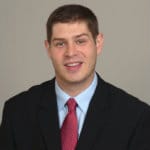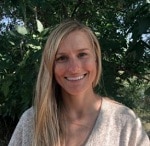Therapists in Boulder, CO and Nearby Locations
Find a therapist in Boulder, Colorado that meets your needs. Browse our comprehensive list of affordable and licensed therapists in Boulder, to find a professional specializing in counseling people with stress, anxiety, depression, relationship issues, grief, and more.
We may receive fees from the providers listed below. See our full disclaimer.
Finding Mental Health Professionals in Boulder, Colorado
Looking for a therapist, counselor, or psychologist in Boulder can be a time-consuming and challenging task. There are several considerations you should keep in mind when starting this process that will help guide you to a better decision.
Therapist Specialties
If you just need the support of a professional to work through some minor issues, then you can choose a therapist without being particular about their areas of expertise. But if you need help with a specific mental health condition, such as depression, anxiety, PTSD, OCD, phobias, or eating disorders, or if you’re looking for relationship or family counseling, then you should ideally find a Boulder therapist specializing in these areas.
In addition to the conditions they treat, some therapists focus on working with specific age groups. If you’re looking for a therapist in Boulder for your young child or teenager, you should seek out a professional who’s qualified to work with those age groups.
Treatment Modalities
Most therapists prefer specific treatment approaches with their patients over others. These can include cognitive behavioral therapy, psychodynamic psychotherapy, dialectical behavioral therapy, and exposure therapy, just to name a few.
Some patients research these treatment options online or consult with friends and decide for themselves which one they need. While you should ideally let the professional decide on the right modality for you, if you find that there are many suitable therapists in Boulder from which to choose, you can narrow down the list based on the treatment modalities you prefer.
Personal Characteristics of the Therapist
You may prefer to work with a therapist in Boulder who speaks a second language that you speak, shares your religious beliefs, or is of a certain gender, race, or ethnicity. Finding a therapist who shares your values or personal experiences may help you open up more quickly and have better chemistry with them.
Session Types
If you need that in-person, face-to-face therapy experience, then you’ll want a professional counselor in Boulder who sees clients in an office. But if you prefer the convenience of working with someone who offers teletherapy sessions via videoconferencing or phone, there are plenty of therapists who provide remote sessions.
If you are not satisfied with the selection of therapists in Boulder, you may want to consider teletherapy even if it’s not your first choice, as any licensed therapist in Colorado may legally work with you.
Getting Started with a Therapist in Boulder, CO
Our therapist directory includes filters to help you find therapists in Boulder, Colorado based on your criteria, including those listed above. The therapists listed here are licensed professionals who work with clients in Boulder. They are subject to all applicable confidentiality regulations for mental health professionals and can be reached using the contact information they’ve provided on their profiles.
- Arvada
- Aurora
- Brighton
- Broomfield
- Castle Rock
- Centennial
- Colorado Springs
- Commerce City
- Denver
- Englewood
- Fort Collins
- Grand Junction
- Greeley
- Highlands Ranch
- Lakewood
- Littleton
- Longmont
- Loveland
- Parker
- Pueblo























